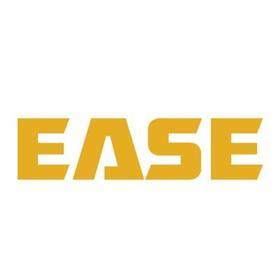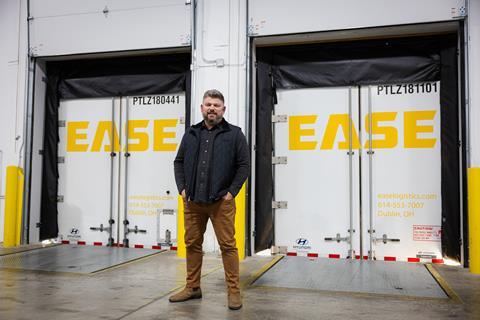Localising EV supply chains isn’t a trend, it’s a necessity
Recent years have illuminated the fragility of global supply chains, with the Covid-19 pandemic serving as a stark example of the challenges faced by industries worldwide, including the electric vehicle (EV) sector. The pandemic underscored the perils of dependence on extensive, international supply networks, especially for critical components such as the batteries and microchips required for EV manufacturing.
This situation has catalysed a shift toward localising supply chains, aiming to mitigate the risks tied to long-distance logistics and ensure a stable, efficient flow of materials essential for production.

Plus, the passing of the Inflation Reduction Act (IRA) in August 2022 has attracted more than $65 billion of investment in the US EV supply chain because of tax credits and government incentives encouraging reshoring.
The drive toward localisation is not merely a reaction to immediate challenges but a strategic approach to building more resilient and sustainable supply chains.
Specific challenges in EV supply chains
EV supply chains encounter distinct obstacles that necessitate innovative strategies for sustainability and resilience. The demand for batteries and microchips, critical components in EV manufacturing, emphasises the necessity of localised supply operations. These components are not only vital but are also sensitive to transit times and temperature variations, which can compromise their integrity and availability.
By transitioning to a localised approach, EV manufacturers can significantly mitigate these risks, ensuring a steady and efficient flow of materials. This strategy addresses the unique logistic and operational demands of the EV industry, such as the need for rapid scalability in response to market growth and the importance of maintaining high-quality standards in production. The localisation of supply chains for these essential components becomes a strategic imperative, aiming to bolster the resilience of the EV sector against disruptions and enhance its capacity to meet the accelerating global demand for EVs.
Strategies for quality, cost reduction and connectivity
In North America, OEMs are pioneering robust strategies to navigate the complexities of EV supply chains and localising their own. A notable example includes Honda’s joint venture with LG Energy Solution to produce lithium-ion batteries in the US to power Honda and Acura EV models for the North American market. The plant will be located in Jeffersonville, Ohio, about 40 miles southwest of Columbus and just south of I-71, close to Honda’s Marysville facility.
This strategic move is designed to improve production capabilities, enabling scalability and flexibility in response to fluctuating demand while maintaining stringent quality controls.
Similarly, Intel’s establishment of a microchip manufacturing facility in Ohio represents a significant step towards self-reliance. By producing microchips domestically, Intel aims to reduce lead times, decrease dependency on international suppliers, and mitigate risks associated with global logistics.
These efforts are instrumental in reinforcing the supply chain infrastructure, ensuring a consistent supply of critical components, and fostering a collaborative environment through enhanced connectivity. Forward-thinking strategies underscore the commitment of OEMs to set new standards for innovation within the EV supply chain ecosystem.

Economic and operational benefits
By situating material production facilities closer to their North American manufacturing hubs, companies are unlocking a suite of economic and operational advantages that extend well beyond mere convenience. These benefits are not just theoretical; they are tangible changes that impact the bottom line and operational fluency of businesses in profound ways.
Firstly, the proximity of supply sources directly translates to lower inventory requirements. With materials and components close at hand, the need for maintaining extensive inventories diminishes, allowing for a more agile and cost-efficient inventory management approach. This agility is further complemented by reduced carrying costs, as the financial burden of stocking and storing inventory is substantially lessened.
Moreover, the shortened transit times associated with localised supply chains cannot be overstated. This logistical optimisation means that materials arrive faster, productions cycles are shortened, and the overall time-to-market for new EV models is improved. The ripple effect of this efficiency is wide-reaching, potentially leading to a more responsive supply chain capable of adapting to market demands with greater alacrity.
The operational impact of reduced expedite costs and more predictable delivery schedules further solidifies the case for localisation. With less dependency on long-haul logistics, companies can enjoy a significant reduction in the unpredictable costs associated with expedited shipments and the logistical headaches of coordinating international deliveries from overseas.
Enhancing relationships with tier suppliers and logistics providers
The evolution toward localised supply chains significantly strengthens the fabric of relationships between OEMs, tier suppliers and logistics providers. This shift fosters an environment where enhanced in-person collaboration becomes the norm rather than the exception.
By narrowing the geographical distances, the communication gaps that once plagued these relationships diminish, paving the way for more seamless, efficient operations. In this new landscape, the immediacy of local partnerships offers an unparalleled opportunity to swiftly address and resolve challenges, making the supply chain more agile and responsive.
Central to this transformation is the streamlined shipping process, characterised by predictable shipping windows and more controlled delivery times. This predictability is a linchpin in the planning and scheduling for manufacturers, ensuring that the flow of materials and components remains uninterrupted and resilient to external pressures. Furthermore, the proximity of suppliers and logistics partners allows for a more dynamic interaction, where the focus shifts towards proactive problem-solving and strategic planning.
This localised approach highlights a commitment to forging stronger, more reliable partnerships. It is through this close collaboration that OEMs can achieve a balance of timely deliveries and meticulous monitoring of sensitive materials like batteries and microchips, essential for maintaining the high standards of quality and efficiency required in the EV industry.

Recommendations for OEMs and supply chain partners
In navigating the transition towards localised supply chains, OEMs and their supply chain partners, like EASE, face a pivotal opportunity to redefine industry standards for efficiency, sustainability and resilience. It is recommended that these entities prioritise the integration of technology to enhance visibility and operational control across their networks.
Emphasising the cultivation of robust relationships with local suppliers emerges as a critical strategy, facilitating swift adjustments to production demands and fostering an ecosystem of mutual growth and support.
Furthermore, embracing a culture of innovation is paramount, encouraging the exploration of novel solutions that can address unique challenges within the EV supply chain. Such a proactive stance not only ensures the adaptability and competitiveness of businesses but also contributes significantly to the advancement of sustainable logistics practices.
By focusing on these strategic areas, OEMs and supply chain partners can significantly enhance their capability to navigate the complexities of modern supply chains.
Localisation is not just a trend; it’s a necessary evolution. It is the key to mitigating risks, reducing costs and improving overall efficiency by bringing suppliers and manufacturing plants together.







